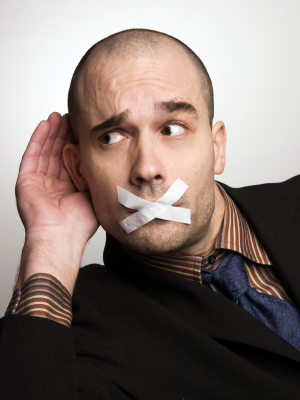 Vacation reviews are generally good and truthful and help us in making travel plans. These reviews, whether on AirBNB, VRBO, Booking.com, Trip Advisor or many other sites, are generally pretty helpful. But very occasionally, a review might step over the libel line and and leave both the reviewer and the publisher open to a libel or defamation complaint. This basically occurs when the review identifies a person, says something untrue, is published and then causes provable financial or reputation damage to the victim.
Vacation reviews are generally good and truthful and help us in making travel plans. These reviews, whether on AirBNB, VRBO, Booking.com, Trip Advisor or many other sites, are generally pretty helpful. But very occasionally, a review might step over the libel line and and leave both the reviewer and the publisher open to a libel or defamation complaint. This basically occurs when the review identifies a person, says something untrue, is published and then causes provable financial or reputation damage to the victim.
So what is a reviewer to do?
I always leave 4-5 stars on lodging stays, unless there is truly a problem with the room or apartment. If a problem crops up during our stay, I try to contact the owner or manager of the property to resolve the issue–and they usually do. Rarely is a place uninhabitable or check-in a Herculean task (we have experienced both). If a coffee pot is broken or there is something else amiss, let the owner or manager know immediately. We travel frequently and overall have had outstanding and memorable experiences.
I am somewhat distant from an AirBNB unit we own in Carlsbad, CA. I recall some months ago, a guest reached out to let me know the kitchen blender was broken. I paid my cleaner to run over to Target and buy a nice new one. Guest was happy, problem was resolved, and I was relieved. I believe most owners and managers want their guests to be happy with their visit. We do the same for a Reno vacation rental I manage.
But sometimes, owners are non-responsive and there may be unresolved health hazards that other guests should beware. I would advise to always try to deal with someone who has the power to get things done. That is usually the owner or manager for the property. If there is no response, it may be time to either write the responsible party to let them know of the problem and as a last resort, complain publicly via a review.
When writing negative vacation reviews, be very careful not to exaggerate or speculate. Deal with facts only. Failure to do so could leave you open to libel litigation–especially if your review causes financial harm that can be proved. That is one reason companies like AirBNB and TripAdvisor may want to investigate negative or suspicious reviews before publishing them to make sure there is no fabrication , or they could become party to any libel litigation that might arise.
To win or lose a libel case, the following must be proven:
- Someone made a statement
- The statement was published
- The statement caused injury
- The statement was false
- The statement did not fall into a privileged category (complaining to courts regulatory authorities)
So what can protect you from a libel lawsuit?
1. Truth
2. Consent
3. Privilege
4. Statute of Limitations
Note that TRUTH or the lack of it are key elements in libel litigation and actual damages must occur. If a statement is made in a vacuum and not published, there can be no libel. And publication itself is not enough. The victim must be able to prove financial loss or provable damage to reputation. If these do not exist or are not provable, a libel suit would likely be unsuccessful.
So what are the potential damages from a libel lawsuit? That largely depends on where the property is located. In Canada, for example, it is both a civil and criminal offense carrying a potential 2-year prison term plus civil monetary damages. In the US, much depends upon the state where the damage occurred. All states allow for civil monetary damages that can include both compensatory and punitive damages, which can be very heavy if a jury feels a lesson needs to be taught. But some states treat libel as a criminal offense as well, including Nevada, Idaho, Texas, Florida, Montana, Michigan and many more.
How heavy can libel damages be? In a 2016 Nevada case, a jury awarded $38.3 million to Bradley Stephen Cohen in an internet defamation case. Another jury awarded $50 Million to a South Carolina mayor whose opponent sent out several defamatory emails about Mayor Lisa Sulka.
Internationally, the penalties can be even heavier. Beware Europe: In many countries defamation and libel are criminal offenses that can land one in prison– and journalists are not immune. In Singapore:
Penal Code Section 499 states that, if a person intends to defame another person or should know that what he or she says will harm that person, then that person has committed a crime that can be punished by a fine plus up to two years in jail.
Heaviest damages seem to occur when someone is libeled and damaged professionally–or hindered from making a living because of the defamation. Damages can also accrue if there is evidence of malice or gross negligence.
Many years ago, I studied libel law, taught it in journalism classes and also worked at the Dallas Times Herald as a reporter. Libel was a big deal in those days–and so was the truth. And it still is. We created habits that should be second nature to every writer/editor: Always be on high alert for libelous passages. Incorrect facts, such as room pricing, may be annoying but they are not libelous. However if you make or imply an untrue statement about someone and it is published (even by email) and it results in financial or reputation harm, you may end up in court, or even prison in certain locations.
My advice to potential reviewers: Do not speculate or write in anger. Deal with provable facts only. Take photos and screenshots to substantiate your statements. The TRUTH will always be your best defense. And if this is not possible, take my deceased mother’s wise advice: “If you don’t have anything nice to say, keep your mouth shut!”






